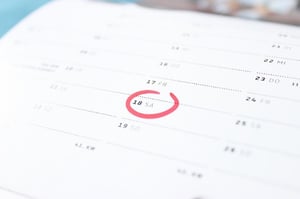 In an earlier post, I wrote about the decision-making process that our clients go through in determining whether to file a bankruptcy case. The last post dealt in large part with the advisability of thinking through the financial problems carefully, and involving friends and relatives to get a sense of whether these supporters think the bankruptcy option is a good one. At the end of the post I wrote that seeing an attorney is essential to good decision-making regarding the wisdom of filing a bankruptcy case.
In an earlier post, I wrote about the decision-making process that our clients go through in determining whether to file a bankruptcy case. The last post dealt in large part with the advisability of thinking through the financial problems carefully, and involving friends and relatives to get a sense of whether these supporters think the bankruptcy option is a good one. At the end of the post I wrote that seeing an attorney is essential to good decision-making regarding the wisdom of filing a bankruptcy case.
In this post I want to look at the factors that I consider when potential clients come in to see me at Kain & Scott and ask if filing a bankruptcy case is a good idea for them. There are several things I look at, some are related; some are not. Here’s a sample:
What is the worst thing that a creditor can do to you if you can’t pay your bills?
Some clients come to see me with serious debt problems but without a lot of assets or income. For these clients, there may not be much a creditor can do to collect against them - there aren’t wages to garnish, and/or there isn’t any non-exempt property to seize. Clients in this situation don’t have a lot at risk if they choose to not file a bankruptcy case. That certainly doesn’t mean that the low-asset, low-income client shouldn’t file a bankruptcy case (more on that later); it simply means that there’s not a lot of urgency in filing a case immediately.
On the other hand, the client who has a healthy income, and who owns real estate and vehicles, and has some recreational vehicles is a much more inviting target for creditors seeking collection. In most cases, the vulnerable spot for a client is the paycheck. In Minnesota, judgment creditors can garnish up to 25% of a net paycheck, or anything over 40 times the hourly minimum wage, per week, whichever is less. Clients in this situation appreciate the financial damage that would be done to their family if a wage garnishment goes through. We tell clients that the garnishment will stop upon the filing of a bankruptcy case. For them, the immediacy of the problem makes filing a bankruptcy case sooner, rather than later, advisable.
Are you financing your debt?
A telltale sign of financial trouble is the client who is transferring balances to take advantage of low-interest or no-interest introductory terms to reduce their monthly payments. Another sign is the client who is paying monthly credit card bills with credit card advances from other cards. Or the client who is borrowing against home equity or retirement accounts in order to keep his financial head above water. In all these cases, clients are not paying down debt. They are managing debt, often with the use of more credit. Their debt is being serviced through financing. Once people are on this credit hamster wheel, it’s difficult to get off without some decisive action, such as filing a bankruptcy case. The regular financing of debt is a situation that frequently calls for a bankruptcy to straighten out.
Are you using credit cards to pay for necessities?
Another sign that a bankruptcy case might be appropriate is for the client who is using credit cards to pay for gas and groceries - the day-to-day necessary expenses that we all have. People in this situation are usually doing this due to a drop in income, or a spike in expenses. If the use of credit to manage the purchase of necessities is short-lived, then it’s possible that a bankruptcy filing is financial overkill. But if the use of credit cards to put food on the table or fuel in the gas tank has become standard operating procedure, it’s very possible that a bankruptcy filing is appropriate to break that cycle.
In my next post, I’ll continue going through the factors I consider in advising clients about whether to file.



